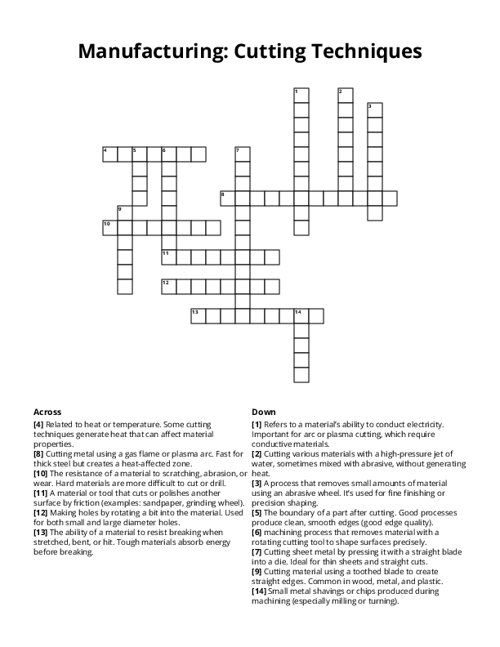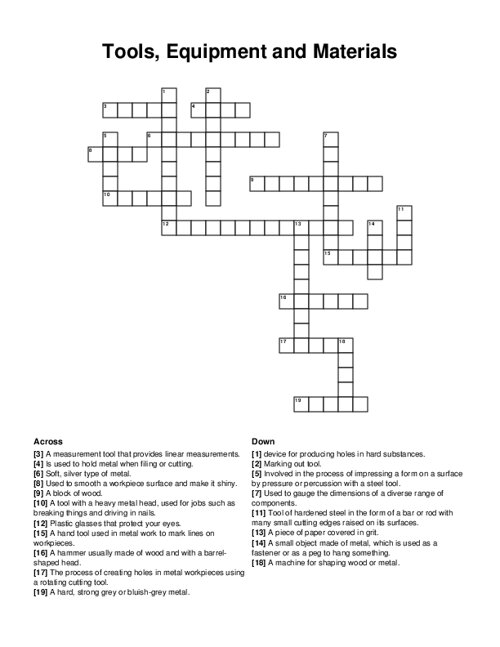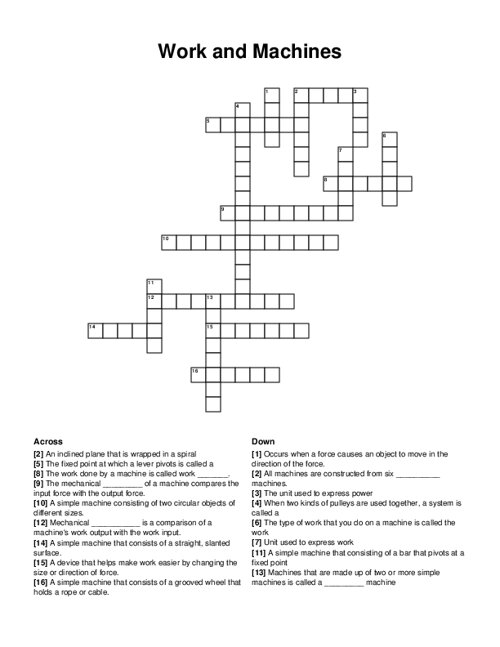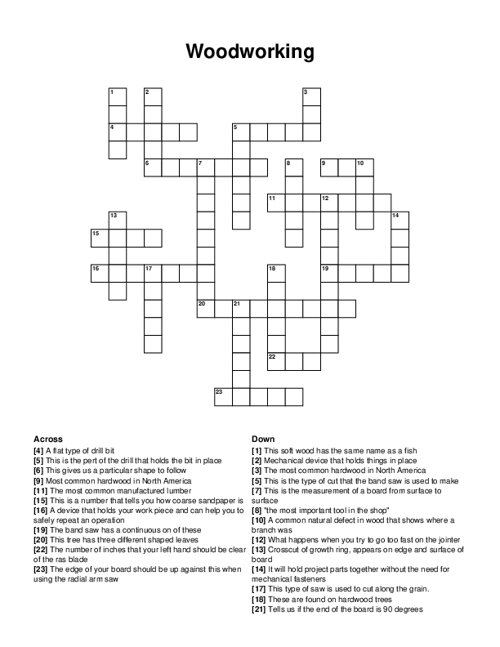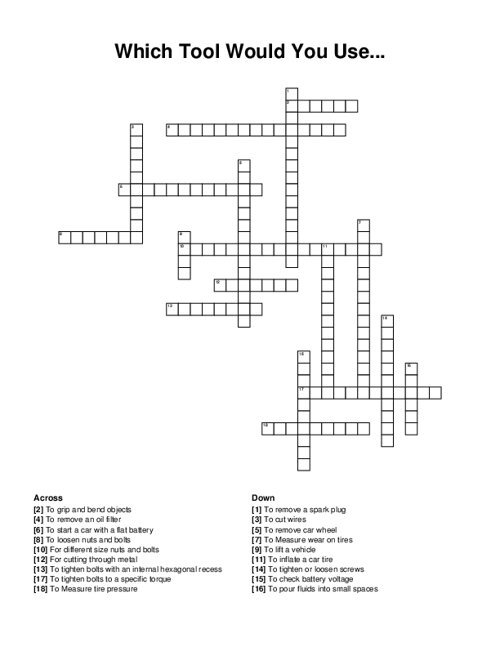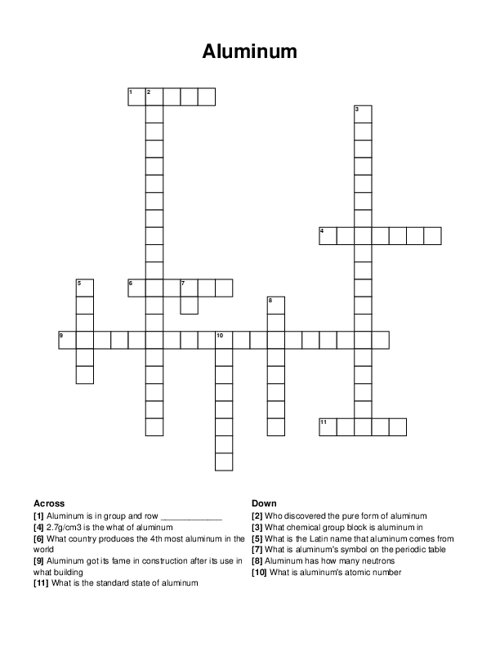Manufacturing: Cutting Techniques Crossword Puzzle
Download and print this Manufacturing: Cutting Techniques crossword puzzle.
Related puzzles:
Browse all Tools / Equipment Puzzles
QUESTIONS LIST:
- sawing : cutting material using a toothed blade to create straight edges. common in wood, metal, and plastic.
- electrical : refers to a material’s ability to conduct electricity. important for arc or plasma cutting, which require conductive materials.
- drilling : making holes by rotating a bit into the material. used for both small and large diameter holes.
- edge : the boundary of a part after cutting. good processes produce clean, smooth edges (good edge quality).
- toughness : the ability of a material to resist breaking when stretched, bent, or hit. tough materials absorb energy before breaking.
- swarf : small metal shavings or chips produced during machining (especially milling or turning).
- abrasive : a material or tool that cuts or polishes another surface by friction (examples: sandpaper, grinding wheel).
- flame cutting : cutting metal using a gas flame or plasma arc. fast for thick steel but creates a heat-affected zone.
- guillotining : cutting sheet metal by pressing it with a straight blade into a die. ideal for thin sheets and straight cuts.
- thermal : related to heat or temperature. some cutting techniques generate heat that can affect material properties.
- grinding : a process that removes small amounts of material using an abrasive wheel. it’s used for fine finishing or precision shaping.
- milling a : machining process that removes material with a rotating cutting tool to shape surfaces precisely.
- hardness : the resistance of a material to scratching, abrasion, or wear. hard materials are more difficult to cut or drill.
- water jet : cutting various materials with a high-pressure jet of water, sometimes mixed with abrasive, without generating heat.
